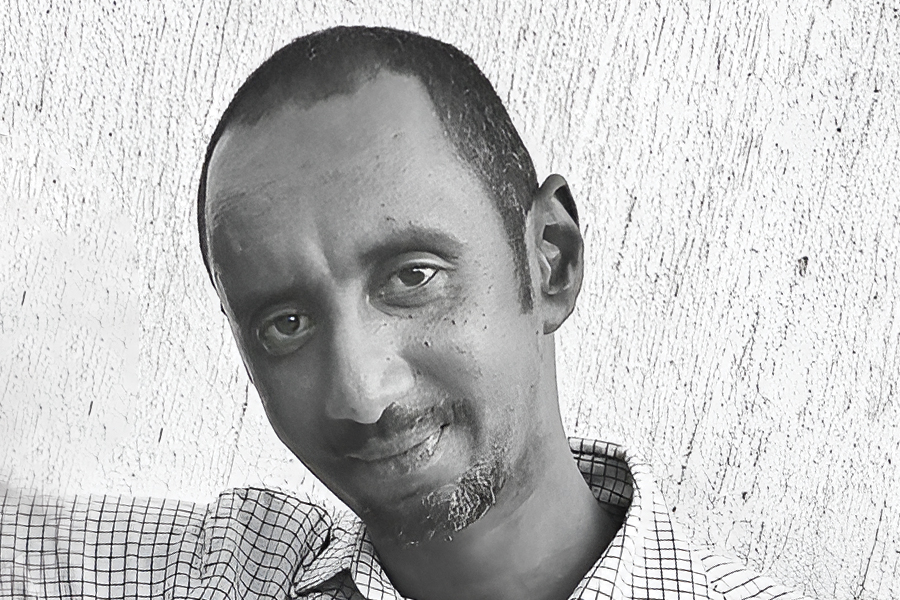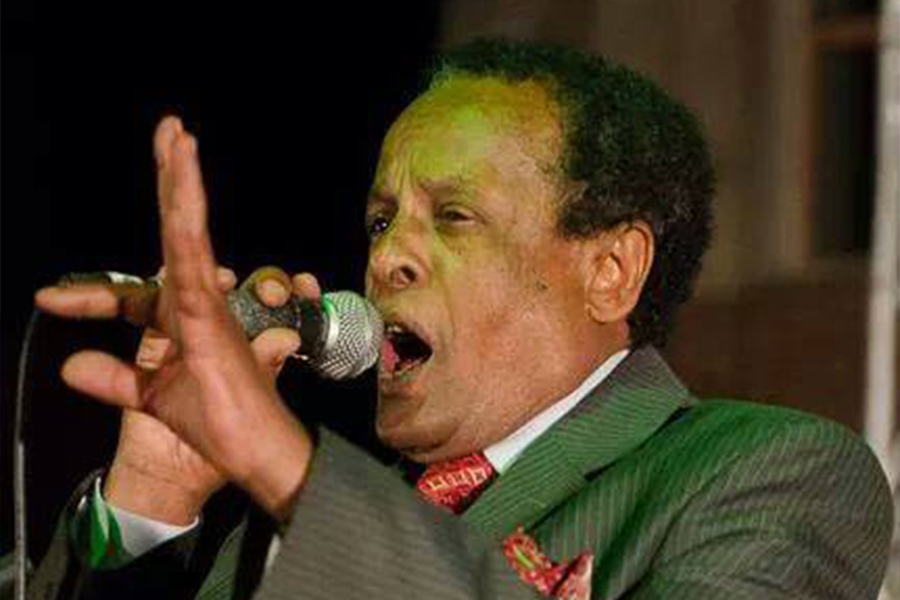
Obituary | Nov 09,2024
The National Theatre event that brought together the traditional sounds of Japanese instruments and vibrant Ethiopian melodies was a remarkable celebration of cultural diversity. Set against the backdrop of historical and cultural elements from both nations, the evening showcased the shared richness of their heritage.
Organised by the Ethiopian Art Club of Japan, led by Junko Yamamoto and Daniel Nigatu, the stage was set for a cultural celebration that transcended differences, creating a truly international atmosphere. Arriving early allowed me to explore the surroundings, taking a nostalgic journey through the legendary Lion of Judah statue, a shoeshine near Ras Hotel, and a quick stop at Addisu Tafach Pastry for a snack.
When I returned to the show, elegantly dressed ushers adorned with beautiful embroidery welcomed a diverse audience. Opening statements from the Moseb and Coderanny bands, along with officials and the Japanese Ambassador to Ethiopia, set the tone for an evening celebrating the union of two distinct musical traditions.
Japan has a long history of being an isolated island nation that managed to preserve its independence, while Ethiopia is known as the African nation that was not colonised during the scramble for Africa. I believe it paved the way to showcase their unique culture and history. While each nation has its distinct characteristics and contributions to the world, I was surprised to pick points of comparison. Both countries have a rich cultural heritage with unique traditions and customs. They both have a strong tradition of arts and crafts with tea ceremonies, ikebana (flower arranging), and calligraphy in Japan being somehow similar to Ethiopia's coffee ceremony, traditional music, dance and handwoven crafts.
Traditional clothing is an essential aspect of their cultural identity. I was at the edge of my seat as the two bands garbed in their respective cultural attires. Moseb initiated the evening with captivating traditional instruments, showcasing breathtaking dances. They elegantly hovered on the stage much to the delight of the spectators with the climax of the piece as girls performed in the extremely difficult neck-spinning manoeuvres followed by a thunderous applause.
Coderanny took the stage next, enchanting the audience with their unique blend of traditional Japanese instruments and a mesmerising vocal performance by soprano Freddi Tsukamoto. It was accompanied by the instrumental players which constituted Kazuhisa Akiyama, on the Shamisen and Plectrum (guitar), Kanako Mikado on the Fue (flute), the flamboyant Chan Yuka on the Taiko (barrel drum) and Katsumi Tanaka on the guitar. The hall once again erupted in explosive applause at the end of the first show.
When the guitarist made a brief introduction to a Japanese Coal miner's folk song called Tanko Bushi, it was a bit of a history lesson about the now-defunct industry, that was deeply entwined in the collective psyche.
To put an icing on the cake the folk song is accompanied by a distinct choreographed dance. I was captivated by the demo when asked if they were interested to learn the dance which was replied with an affirmation. As the music started and the song was played, part of the audience emulated the moves by the band on stage. It was a moment of great connection, as different nationalities fumbled to stay in line.
The highlight of the evening was the seamless fusion of Ethiopian and Japanese traditional music. The two bands performed together, demonstrating the remarkable compatibility between their instruments. I was treated to a performance that transcended language and cultural boundaries, uniting people from different parts of the world.
As I learned later, traditional Japanese music is predominantly pentatonic (five scales) with an occasional swing to heptatonic (seven scales) similar to Ethiopian music. The fact that the instruments were similar also made it difficult to differentiate which was playing at what time.
The collaboration reached its pinnacle with a joint performance of Tilahun Gessesse's "Japanuan Wedije," beautifully sung by Freddi Tsukamoto and Azeb Dagnew. It took me on a ferry ride between the cities of Tokyo and Yokohama, while the lyrics sung in both languages created a magical atmosphere, striking similarity between the two ancient and conservative cultures and civilisations.
Both countries are known for their stunning landscapes. Japan is famous for its cherry blossoms, picturesque mountains, and hot springs while Ethiopia boasts diverse geography, including the Simien Mountains, the Danakil Depression, and the Rift Valley. Their nations take pride in their diverse cultural identities. Japan places significant importance on concepts such as harmony, respect, and discipline, which are evident in various aspects of daily life. Meanwhile, Ethiopia, with its diverse ethnic groups, has a rich tapestry of cultures, languages and traditions.
The show continued with performances in various Ethiopian languages, showcasing the versatility of both bands. From a lively Gurage song to a captivating Eskista dance, the collaborative efforts of the musicians further solidified the connection between the two cultures.
It was not only a musical performance but a celebration of cultural exchange, partnership and the universal language of music. As the show concluded with a standing ovation and a group photo of dignitaries, I left the theatre with faces beaming in delight, having experienced an evening that will be remembered for years to come.
PUBLISHED ON
Feb 17,2024 [ VOL
24 , NO
1242]


Fortune News | Sep 08,2024

View From Arada | Mar 01,2024

Dec 22 , 2024 . By TIZITA SHEWAFERAW
Charged with transforming colossal state-owned enterprises into modern and competitiv...

Aug 18 , 2024 . By AKSAH ITALO
Although predictable Yonas Zerihun's job in the ride-hailing service is not immune to...

Jul 28 , 2024 . By TIZITA SHEWAFERAW
Unhabitual, perhaps too many, Samuel Gebreyohannes, 38, used to occasionally enjoy a couple of beers at breakfast. However, he recently swit...

Jul 13 , 2024 . By AKSAH ITALO
Investors who rely on tractors, trucks, and field vehicles for commuting, transporting commodities, and f...

Oct 25 , 2025
The regulatory machinery is on overdrive. In only two years, no fewer than 35 new pro...

Oct 18 , 2025
The political establishment, notably the ruling party and its top brass, has become p...

Oct 11 , 2025
Ladislas Farago, a roving Associated Press (AP) correspondent, arrived in Ethiopia in...

Oct 4 , 2025
Eyob Tekalegn (PhD) had been in the Governor's chair for only weeks when, on Septembe...